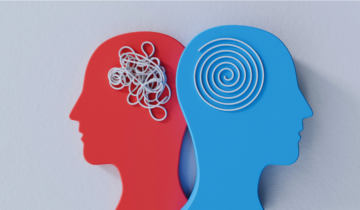Unlocking the secrets to pleasuring a woman goes beyond just physical touch – it’s all in the mind. Join us as we dive deep into the psychology behind what truly makes a woman feel desired, appreciated, and satisfied. Discover how understanding her psyche can elevate your intimacy to new heights and create an unforgettable experience for both of you. Get ready to unleash the power of your mind and revolutionize your approach to pleasing a woman like never before!
Introduction: Setting the Stage for Understanding Pleasure and the Mind
Welcome to a journey into the fascinating world of understanding pleasure from a psychological perspective. Today, we delve into the intricate workings of the female mind and how it relates to experiencing pleasure. Get ready to uncover the secrets behind what truly pleases a woman and how you can enhance your connection on a deeper level. So, buckle up as we explore “The Power of Mind: Understanding the Psychology Behind Pleasuring a Woman.”
The Woman Brain: How it Functions Differently from the Male Brain
When it comes to understanding pleasure in women, delving into the intricacies of the Woman brain is essential. Research shows that the Woman brain tends to have stronger connections between regions responsible for emotion and memory, resulting in a heightened sensitivity towards emotional cues.
The amygdala, a key player in processing emotions, is typically more active in women, leading to a deeper and more nuanced experience of pleasure. Furthermore, the release of oxytocin during intimate moments not only enhances bonding but also contributes to feelings of pleasure and satisfaction.
Unlike men who often focus on physical stimulation alone, women may require a combination of emotional connection and mental engagement to fully experience pleasure. This highlights the importance of fostering trust and intimacy in relationships as crucial elements for providing pleasurable experiences for women.
Neurochemistry of Pleasure: The Role of Dopamine, Serotonin, and Oxytocin
Have you ever wondered what happens in the brain when pleasure is experienced? It all comes down to neurochemistry. Dopamine, often referred to as the “feel-good” neurotransmitter, plays a crucial role in the brain’s reward system. When dopamine is released, it creates feelings of pleasure and reinforces behaviors that bring about this sensation.
On the other hand, serotonin helps regulate mood and emotions. Low levels of serotonin have been linked to conditions like depression and anxiety, which can impact how one experiences pleasure. Oxytocin, known as the “love hormone,” is involved in bonding and social connection. It plays a significant role in intimate relationships and human interactions by promoting feelings of trust and closeness.
Understanding how these neurotransmitters work together can provide insights into why certain activities or connections may be more pleasurable for some individuals than others. The intricate dance of dopamine, serotonin, and oxytocin within our brains sheds light on the complex nature of pleasure and emotional experiences.
Emotional Connection: Why Women Need It to Experience Pleasure
When it comes to experiencing pleasure, emotional connection plays a crucial role for women. It’s not just about the physical aspect; it’s about feeling understood, valued, and emotionally connected with their partner.
For many women, feeling emotionally safe and secure is essential for letting go of inhibitions and fully enjoying intimate moments. When there is trust and openness in a relationship, it creates a space where vulnerability can be embraced rather than feared.
Emotional connection also helps in building intimacy beyond the physical realm. By connecting on an emotional level, partners can deepen their bond and create lasting memories that enhance the overall experience of pleasure.
It’s important to remember that each woman is unique in her needs and desires when it comes to emotional connection. Taking the time to communicate openly and empathetically can lead to a deeper understanding of what brings true pleasure to your partner.
Psychological Barriers to Pleasure: Insecurities, Trauma, and Societal Pressures
Have you ever wondered why some women struggle to fully experience pleasure? It’s not always about physical factors; sometimes, psychological barriers can play a significant role. Insecurities, whether stemming from body image issues or past experiences, can create obstacles to feeling at ease and enjoying intimate moments.
Trauma, whether recent or buried deep in the subconscious, can also impact a woman’s ability to let go and embrace pleasure. The lingering effects of past negative experiences can manifest in various ways, affecting how she perceives intimacy and connection with a partner.
Societal pressures add another layer of complexity. Expectations placed on women by society regarding sexuality, relationships, and even self-worth can create internal conflicts that hinder the ability to relax and truly revel in pleasurable experiences.
Understanding these psychological barriers is crucial for fostering open communication and creating a safe space where both partners feel understood and supported. By acknowledging and addressing these challenges together, couples can work towards overcoming them and nurturing deeper levels of intimacy.
Communicating and Understanding Your Partner’s Desires and Needs
Understanding and pleasuring a woman goes beyond physical touch; it delves into the realm of the mind. By comprehending the complexities of the female brain, recognizing the neurochemicals at play, valuing emotional connections, and addressing psychological barriers, you can unlock a world of pleasure for your partner.
Communication is key in this journey. Listen to her desires without judgment, communicate openly about needs and boundaries, and create a safe space where both partners feel understood and valued. By fostering an environment of trust and understanding, you pave the way for deeper intimacy and heightened pleasure in your relationship.
Remember that every woman is unique in her desires and responses. Take the time to explore what brings pleasure to your partner individually, engage in open dialogue about preferences, and be willing to adapt as needed. The power of mind plays a significant role in pleasuring a woman – embrace it with curiosity, empathy, and respect.





